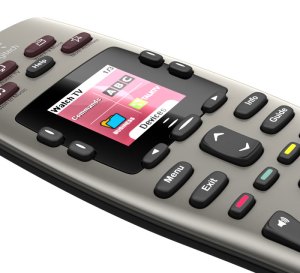
It might not come as much of a surprise from Logitech, a company that develops and sells devices like the Harmony universal remote controls, but a new Logitech-commissioned study from Wakefield Research finds that one over one third of U.S. living rooms have four or more remote controls for consumer electronic gear, and the number is even higher in some other countries, with over half the living rooms in the United Kingdom, France, and Australia sporting four or more remotes. The study found that almost half of users reported having to press three or more buttons—often on multiple remotes—”just to watch a DVD movie.” Roughly 90 percent of respondents believe their home entertainment experience would be more enjoyable if they could press just one button to “enjoy their favorite feature film.”
Of course, those results play right into Logitech’s hands—if the study’s results had shown that people don’t mind dealing with multiple remotes and weren’t bothered by them, then we’re willing to bet Logitech wouldn’t be trumpeting the results. Logitech’s interpretation of the study is, of course, that consumers everywhere are strongly demanding “one-touch simplicity” in their home entertainment options.
But the study has some other interesting figures. According to Wakefield, about one in five Americans owns a consumer electronics device like a home stereo system or DVD player that is rarely or never used because users have lost the remote. Another interesting finding: between 15 and 24 percent of households in the seven countries surveyed have members who do not use electronic devices because they don’t understand how to operate the remote(s). Between 16 and 27 percent of households have written down instructions for how to use their remote controls so friends, babysitters, and others can have a prayer of figuring out their home entertainment system.
We’re betting it’s not so much the number of buttons users have to push—after all, most people have to touch more than three things to make a phone call—but the conceptual complexity of getting modern home entertainment gear to do any one particular thing. Universal remotes are certainly a technology that can help in some situations, but—as many universal remote users can attest—getting that technology set up isn’t always a walk in the park either.


